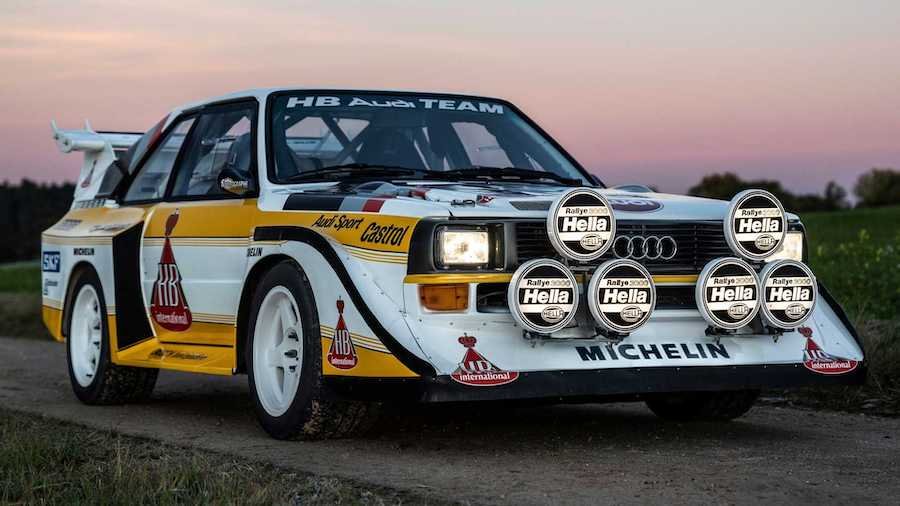Audi Sport Quattro S1 Replica Is Just As Spectacular As The Original

The story of Audi's rally car that put the word Quattro on the performance map started in 1980 with the original version in which Michèle Mouton became the first female driver to win an FIA World Rally Championship event just a year later. A subsequent, more powerful A2 evolution of the car followed to enable the boxy rally car to meet the regulations of Group B, which went on to replace Group 4 and Group 5 cars.
But it's the later Quattro S1 enthusiasts remember the most, a rally car tailored to the Group B championship of 1984. The very same Michèle Mouton won at Pikes Peak a year later with a record time, and Audi went on to introduce the evolution 2 model at the end of 1985. That car won at Pikes Peak yet again in 1987 with none other than Walter Röhrl behind the wheel. You'd be excused for thinking this car is a genuine Sport Quattro S1 E2 since the replica is a faithful interpretation of what was Audi's final Group B car.
It looks and sounds sensational, powered by an inline-five engine like its source of inspiration. The E2 Walter Röhrl drove made nearly 600 horsepower and 590 Newton-meters (435 pound-feet) of torque from its five-cylinder 2.1-liter unit, which are pretty healthy figures even after nearly 35 years since it went up the famous hill.
This replica shot by Auditography in Markdorf, Germany has a whopping 620 horsepower from a turbocharged five-cylinder mill, enough to hit 62 mph (100 km/h) in three seconds in a car that weighs only 1,150 kilograms (2,535 pounds). That's about the same weight as a subcompact hatchback sold in Europe. Those who were too young or hadn't been born in the glory days of Group B can get a taste of how monstrous those cars were by checking out this accurate replica of Audi's legendary all-wheel-drive rally car.
The S1 E2 was short-lived as the final factory cars were built in 1986 because Group B was canceled that year, deemed too dangerous following the deaths of Henri Toivonen and Sergio Crest. Audi had already planned a follow-up to the Quattro S1 E2 with a new prototype for Group S, but plans for that competition were also scrapped in the wake of several accidents during the 1986 Group B season.


Related News
